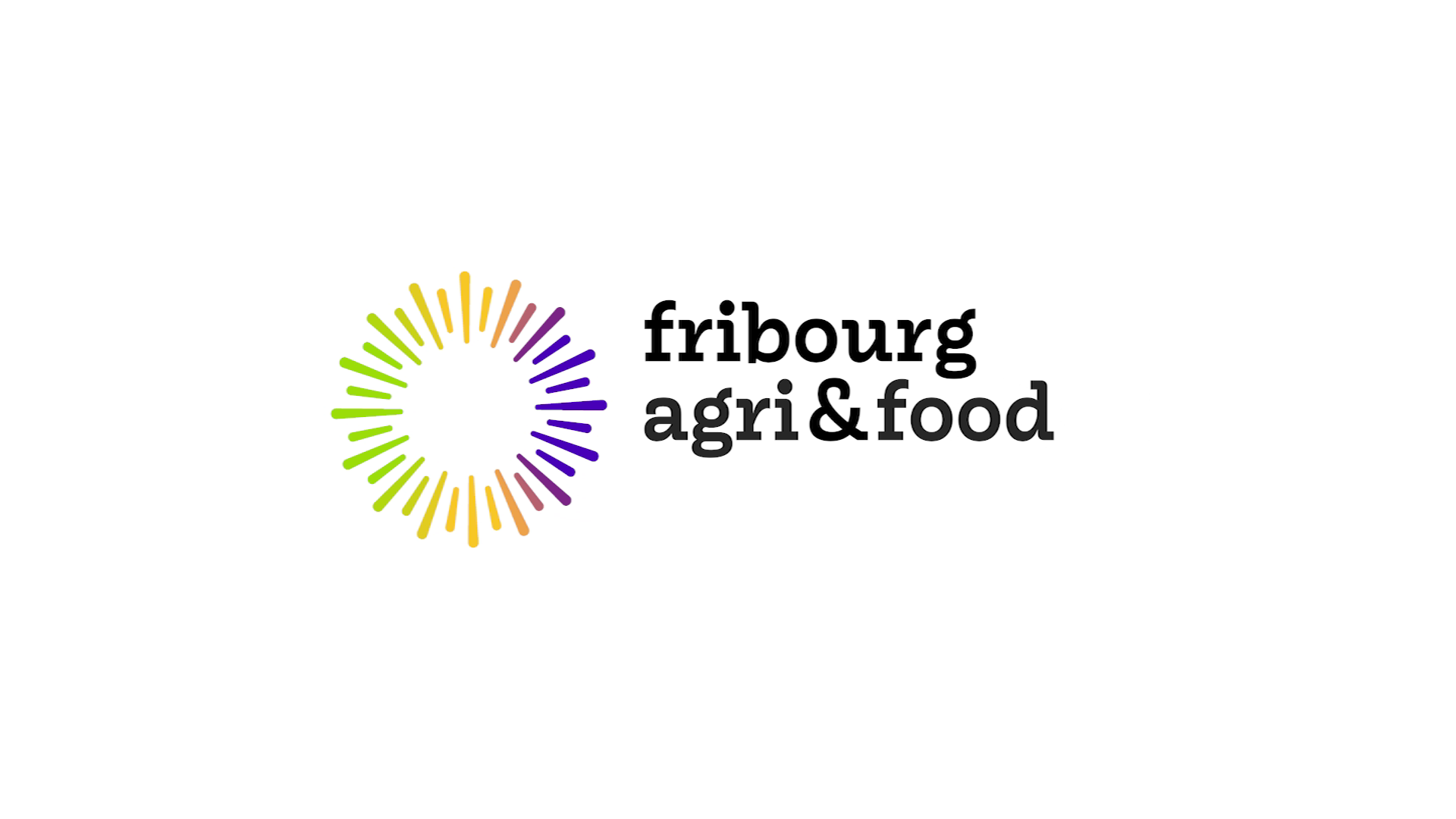
The Canton’s Agri-food Strategy proves itself an effective Catalyst
Three Fribourg State Councillors participated in Friday’s presentation of the initial results of the Canton’s economic development strategy for the agri-food sector. For each of the Strategy’s three flagship programs, an interdisciplinary team undertook the elaboration of a project last year in cooperation with local and regional companies boasting cutting-edge competences in their respective domains. The results obtained are geared to pave the way for new, sustainable economic activities in this booming sector.
Now, following one year of efforts led by the Food & Nutrition cluster, Fribourg’s new Strategy for the development of the agri-food sector, with a budget of CHF 1 million, is proving its effectiveness in this rapidly evolving sector. Three interdisciplinary teams worked throughout 2022 in cooperation with local and regional vanguard companies to develop a specific project in each of the Strategy’s three priority areas, with each project yielding concrete and promising results. At the same time, in each category, an innovation check was also awarded for a total amount of CHF 40,000 (see box). All in all, some 17 dossiers were submitted. In addition, a new visual identity “Fribourg Agri & Food” was also created in order to support the communication of this ambitious Strategy to the general public.
Project #1: Optimized Nitrogen Fertilization (Flagship Program: Agriculture & Food Industry 4.0) The aim of this project was to optimize fertilizer quantities in agriculture through the use of data analysis so as to increase yields and reduce environmental impact. Several methods were tested and the analysis of the large amount of data collected in the process – thanks as well to the use of drones equipped with multispectral cameras – has evidenced the improved efficiency of these methods in comparison to those commonly used.
Project #2: Proteins and Additives in keeping with the Principles of a Circular Economy (Flagship Program: Biomass Valorization) The aim of this project was to develop circular and sustainable models with the utilization of local by-products, in particular whey. A technique for the production of new, nutritionally beneficial ingredients has been developed and validated in accordance with the principles of a circular economy.
Project #3: Food & Farm Living Lab (Flagship Program: FOOD Living Lab) The aim of this project was to actively involve the consumer and the common citizen in the search for a more efficient and sustainable food system. Seven consumer tests were conducted in 2022 with regional companies, in which more than 500 individuals participated. Targeted methodological tools were developed to rapidly test new products, concepts, or business models with consumers in the context of everyday life.
Given the new technologies and know-how developed, these projects opened the gateway to new, sustainable and high added-value economic activities that can be optimized in the coming years.
The President of the Cantonal government and Minister of Institutions, Agriculture and Forestry, Mr. Didier Castella, stated the following: “The development of the Grangeneuve-Posieux campus and the AgriCo site in St-Aubin make it possible for Fribourg to support the entire Swiss agri-food sector both in the area of production, as well as in research and training.”
For her part, Ms. Sylvie Bonvin-Sansonnens, Minister of Education and Cultural Affairs, believes that: “This strategy provides a real opportunity to link practical knowledge with the expertise of scientific research in order to create a more sustainable and efficient agri-food sector in the future.”
The Minister of Economic Affairs and Vocational Training, Mr. Olivier Curty, remarked that the initial results “are very encouraging and show that thanks to the investments made in recent years, the Canton of Fribourg now disposes of both the tools and the skills needed to become the Swiss leader in this sector.”
Innovation Checks
Winner #1: Low impact Food SA. Introduction onto the Swiss market of a new fertilizer which is the product of a local and sustainable circular economy. In the case at hand, reference is made to the fertilizer named “frass”, produced from the excrement of edible insects bred on insect farms, and valued as an excellent source of minerals and biostimulants.
Winner #2: Overney Technologie Sàrl. Mechanical uprooting of yellow dock (Rumex crispus) based on a system of automatic detection, in order to enhance the quality of pastures and meadows by means of a simple, automated and trailed system.
Winner #3: Translait SA and Milco SA. Testing of various alternatives for the utilization of whey for human nutrition within the framework of a regional-level effort to promote local consumption, and creation of a complementary source of income for cheese dairies.
A Strategy with strong Foundations
Fribourg’s agri-food strategy is the result of consistent efforts unfolding in a long-term perspective. Numerous representatives from the economic, agricultural, academic, political and civil society sectors were involved and contributed to its elaboration throughout the various stages. The Strategy is founded upon a Fribourg ecosystem that is already well endowed in this sector and which ranks significantly above the Swiss average in terms of both employment and added value. Furthermore, it is transversally linked to the Canton’s economic development strategy, which is focused on the bioeconomy and Industry 4.0.


